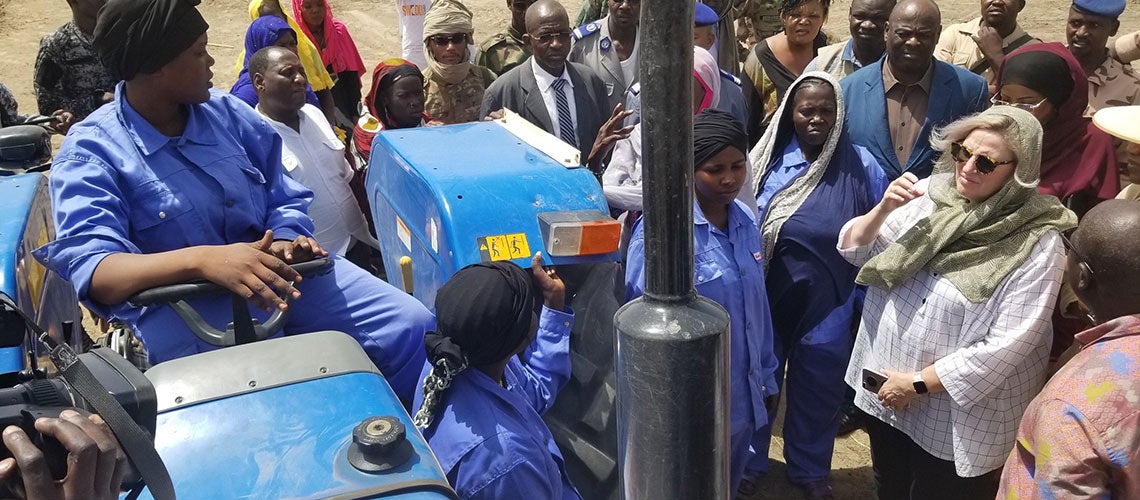 On the frontlines: building human capital in Chad
On the frontlines: building human capital in Chad
“We are truly free, and as long as the tractor is working and helping us generate income, there’s no going back.” On my recent trip to Chad, I was impressed by the optimism and confidence of women like Aminatou, a tractor driver in the small town of Mani in the country’s western region. Along with other women in her rural community, Aminatou is improving her life through skills training with support from the Sahel Women Empowerment and Demographic Dividend Regional Project (SWEDD), which has allowed her to feed her family, build a career and secure a better future.
Projects like SWEDD are based on that knowledge that sustainable economic growth requires women’s empowerment. SWEDD, an education and training program that has supported women and girls in 5 countries in the Sahel, provides hope to communities ravaged by years of conflict. Supported by the World Bank’s International Development Association (IDA), it has shown encouraging promise, helping young female dropouts return to school and training women in marketable professions with transferrable skills such as tractor driving and electrical wiring. The benefits are lasting and extend to the entire community: project-supported areas have seen a 23% increase in the number of girls attending secondary school and dropout rates have been cut in half.
However, Chad still faces tremendous development challenges. Nearly half of its people currently live below the poverty line, only 50% of children attend school, and just 15% of 6th graders can read a simple story. The country is also host to 465,000 refugees from neighboring countries and 130,000 internally displaced people. Poverty, displacement, and a lack of security make it difficult for families to invest in human capital for themselves and their children.
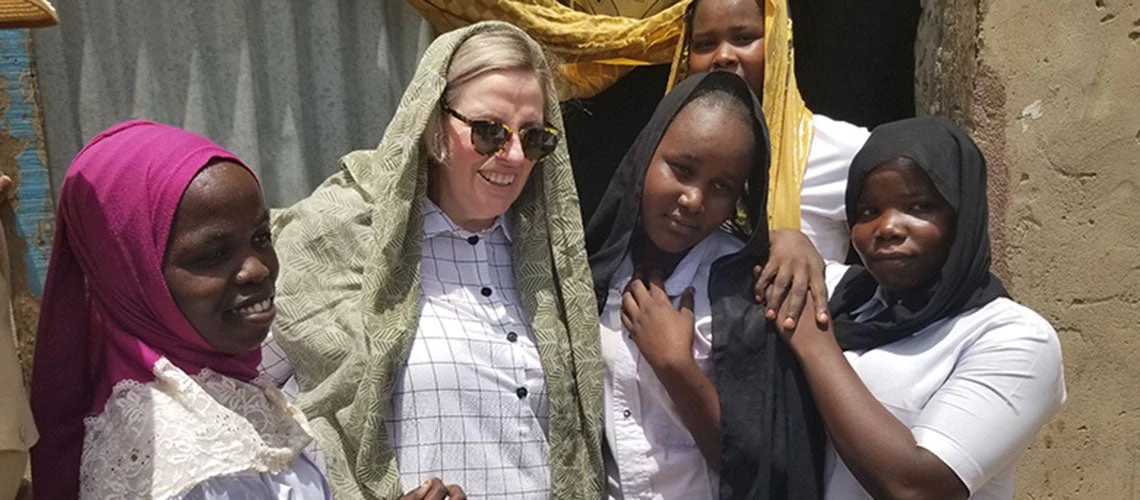
Given this context, it is not surprising that Chad came in at the bottom of the Human Capital Index. The index, which links outcomes in education and health to a country’s productivity, puts into focus how essential it is for countries to prioritize investments in people. Investing in people, particularly women is the most effective and long-lasting way to kickstart progress and build the foundation for peace and prosperity. The government of Chad recognizes this, and I congratulate them on working to reduce child marriage by raising the minimum age of marriage from 15 to 18.
Providing young women opportunities to stay in school longer and develop their careers allows them to start families when they’re ready, and raise children that are healthier, well-nourished, and better educated. More women joining the workforce alongside men helps families improve their living standards, especially as women tend to invest more of their income in their children. The result is a virtuous circle for the overall development of a community—and a country.
Chad recently joined the Human Capital Project (HCP) and is promoting a whole of government approach with a range of stakeholders to address the country’s human capital development. Building human capital demands coordinated and sustained efforts over time, as well as leadership and collaboration to achieve and secure gains. From global experience, we know that countries do well when they protect investments in human capital during both good and bad economic conditions.
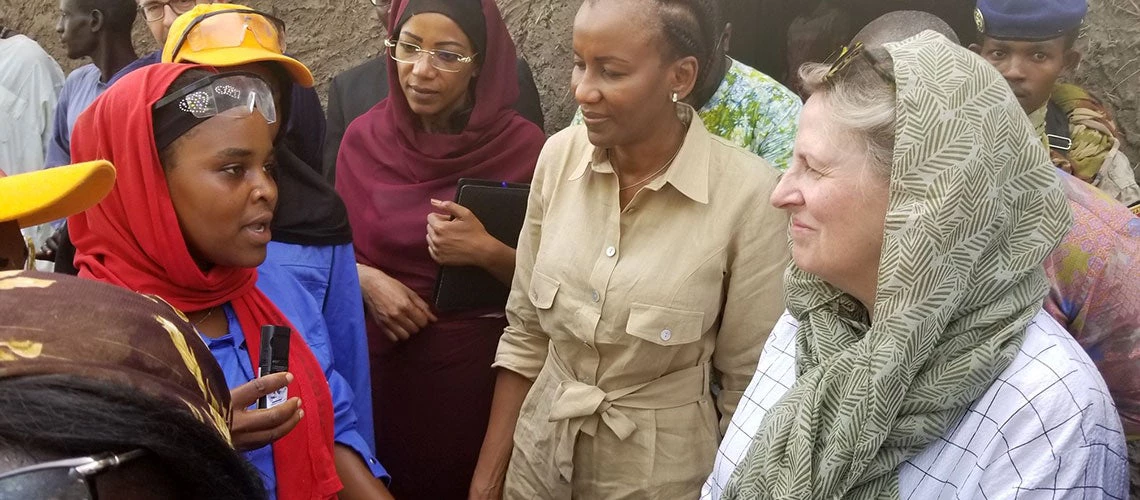
Our engagement with Chad reflects the World Bank’s commitment to building human capital across Africa. We are increasing our funding for human capital by 50%, with a particular focus on fragile countries and approaches that ensure every girl and woman counts. Across the continent, countries are committed to improving their human capital, and experience shows that rapid improvement is possible.
In Chad, we’re working with the government and other stakeholders to accelerate progress through:
- Supporting infant and maternal health through nutrition support, encouraging exclusive breastfeeding, and expanding immunization coverage and malaria treatment
- Equipping schools and teachers for learning so that every child can receive a good education, and teachers receive salaries on time
- Deploying more effective social safety nets to advance progress across nutrition, schooling, and access to essential healthcare and employment opportunities
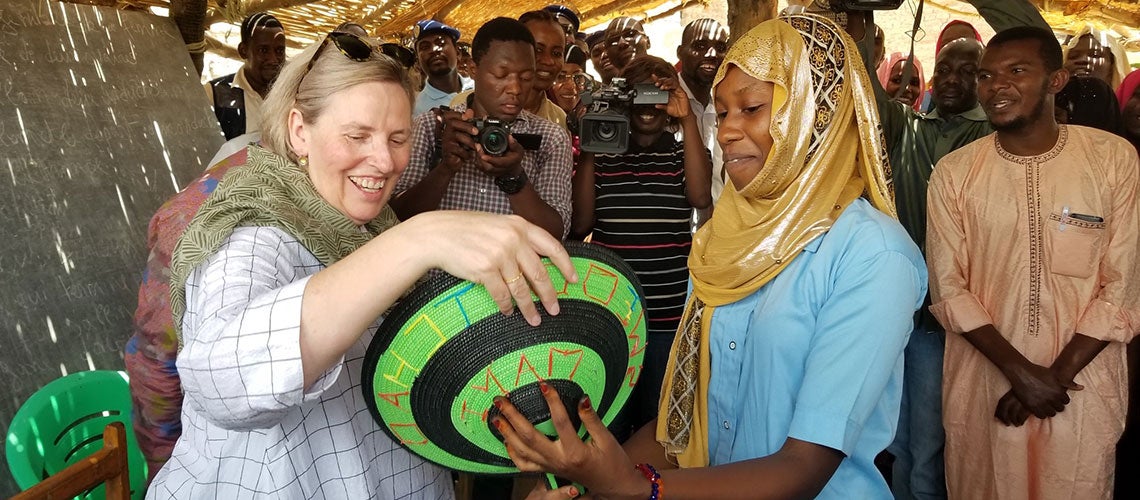
IDA is providing critical resources for Chad, with an increase from $120 million between 2014-2017 to $365 million for 2017-2020. This includes support from IDA’s Refugee Sub-Window for the PARCA project, which is helping more than one million members of host communities and refugees.
We look forward to working further with the people and government of Chad so that Aminatou, her family, and everyone in Chad has the opportunity to build the foundations toward a better future.

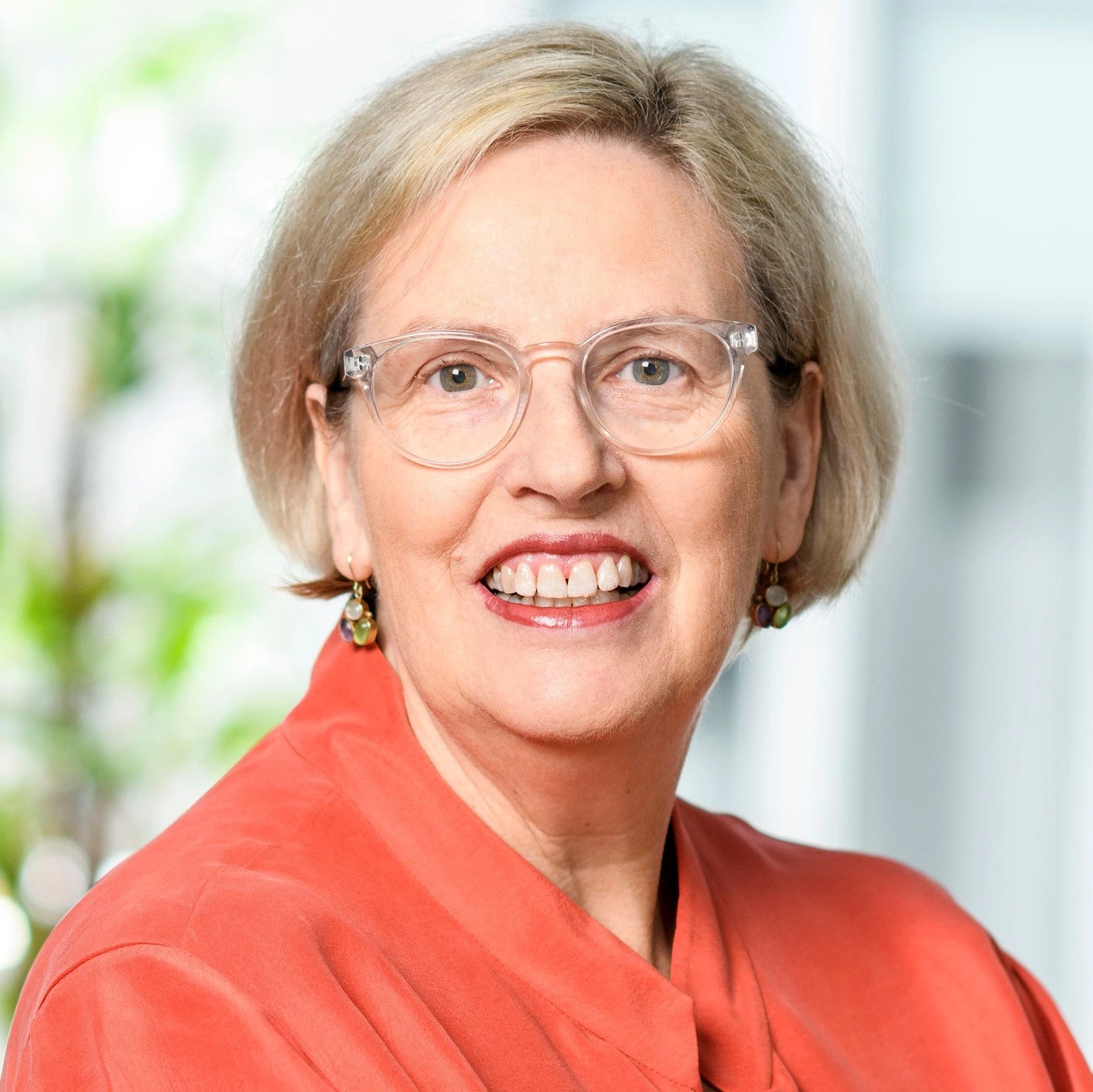
Join the Conversation